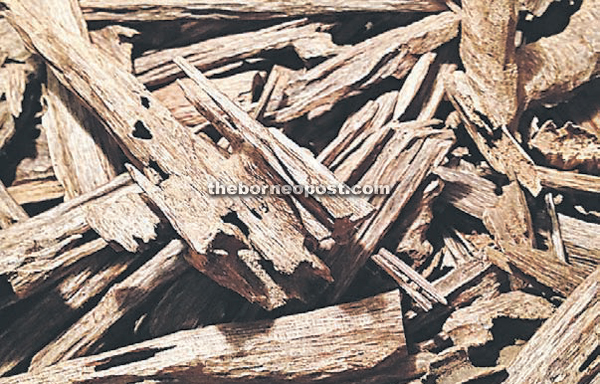
Agarwood, also known as oud, oodh or agar, is a dark resinous heartwood which is valued in many cultures for its distinctive fragrance, and thus is used for incense and perfumes.
KUALA LUMPUR: The Global Outstanding Chinese 100 Organisation of Singapore (GOC100) has partnered with Aseagate (M) Sdn Bhd and Richwood Capital Sdn Bhd to enter the agarwood industry in Laos.
Richwood Capital chief executive officer (CEO) Kendrick Ho Qing Tyat said the cost of investment per tree would be US$90, with a total of 200,000 trees to be planted in the project’s first phase.
Agarwood, also known as oud, oodh or agar, is a dark resinous heartwood which is valued in many cultures for its distinctive fragrance, and thus is used for incense and perfumes.
“The inoculation process will take 3-5 years, so in the meantime, we will also focus on the downstream sector such as selling agarwood tea leaves,” he told a press conference after signing a memorandum of understanding (MoU) here yesterday.
The GOC100, which bagged an exclusive concession by the Lao Central Government’s Ministry of Agriculture and Forestry to manage the country’s agarwood plantation, today inked an MoU with Aseagate, giving the latter sole rights to plantation management over 2,000 hectares of land in Bolikhamsai province, Laos.
Aseagate, in turn, inked another MoU with Richwood Capital to spell out their role in the management, inoculation and supply of agarwood in the Indochina state.
The formalisation of the two MoUs, which would be implemented in March, would pave the way for Aseagate to secure agarwood trees from GOC100 with an estimated contractual value of US$200 million.
GOC100 Secretary-General Peter Lee said the project has attracted strong interest from institutional investors in China, adding this venture would be the first of four phases to be implemented over six to eight years. — Bernama
